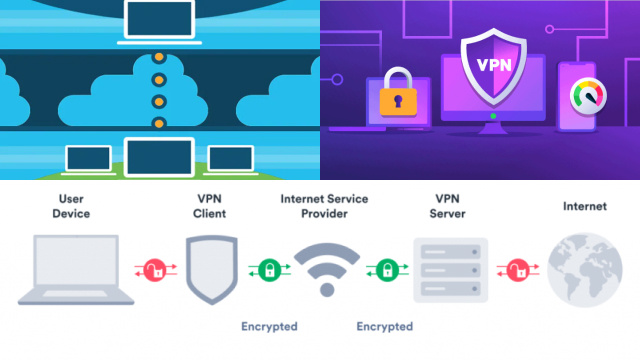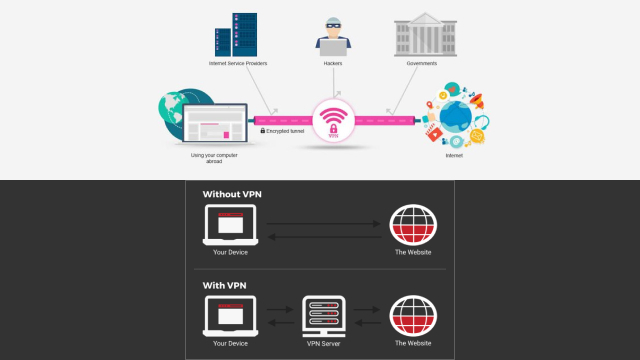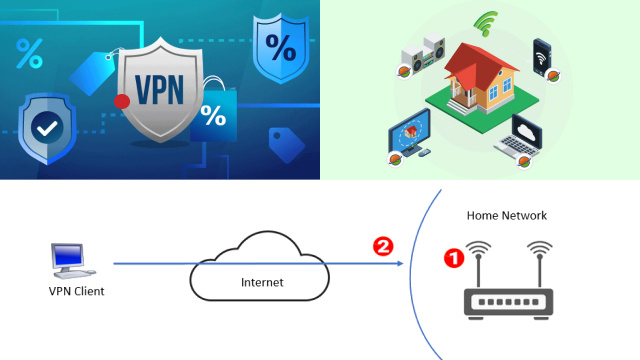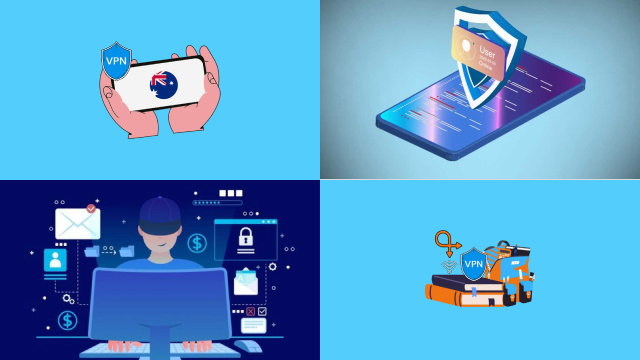Introduction: What is a VPN Service?
A VPN service is a type of online security and privacy tool that allows users to connect to the internet through a secure and encrypted connection. VPN stands for Virtual Private Network, which creates a secure and private network connection between the user’s device and the internet. When connected to a VPN service, the user’s internet traffic is routed through a remote server, which encrypts the data and shields it from prying eyes. This allows users to access the internet safely and privately, without the risk of their online activity being tracked or monitored.

VPN services are used by individuals and businesses alike to protect their online privacy and security, bypass geo-restrictions, and access content that may be blocked in their region. With the increasing importance of online security and privacy, VPN services have become a crucial tool for internet users around the world.
How Does a VPN Service Work?
A VPN (Virtual Private Network) service works by creating a secure and private connection between your device and the internet. It does this by routing your internet traffic through an encrypted tunnel to a server operated by the VPN provider. The VPN server acts as a middleman between your device and the internet, masking your IP address and encrypting your data.
When you connect to a VPN service, your internet traffic is encrypted before it leaves your device and is then sent to the VPN server. The VPN server decrypts the data and forwards it to its intended destination. This process ensures that your online activity is kept private and secure, as your internet service provider and other third parties won’t be able to monitor or intercept your data.
Furthermore, VPN services also allow users to choose the server location they want to connect to. This means that your internet traffic can appear to be originating from a different location than where you actually are, providing you with an additional layer of privacy and anonymity online.
Benefits of Using a VPN Service
Using a VPN service has many benefits for both personal and professional use. One of the biggest advantages is increased privacy and security. By encrypting your internet traffic, a VPN service ensures that your online activity is protected from prying eyes, such as hackers, advertisers, and even your Internet Service Provider (ISP). Additionally, using a VPN can help bypass geo-restrictions and censorship, allowing access to content that may be blocked in certain regions or countries.

Another benefit of using a VPN is the ability to access public Wi-Fi networks without fear of being hacked. Public Wi-Fi networks are often unsecured, making them a prime target for hackers looking to steal sensitive information. By using a VPN, your data is encrypted and secured, making it much more difficult for hackers to access.
Finally, a VPN can provide anonymity and protection from government surveillance or other forms of monitoring. This is particularly important for individuals living in countries with strict censorship laws or for journalists and activists who need to protect their identities while reporting on sensitive issues.
Types of VPN Services
Virtual Private Network (VPN) services come in different types, and each type is suitable for different purposes.
- Remote Access VPN: This type of VPN enables remote users to securely access a company’s private network from a remote location. It uses encryption to protect data transmissions over the internet.
- Site-to-Site VPN: Site-to-Site VPN connects different sites of an organization through the internet, allowing secure communication between them. It is commonly used to connect branch offices to the headquarters.
- Mobile VPN: Mobile VPN is designed for users who connect to public Wi-Fi hotspots or other unsecured networks. It encrypts the user’s internet traffic, protecting them from cyber-attacks and ensuring privacy.
- Cloud VPN: Cloud VPN is a VPN service that runs on cloud infrastructure. It is a scalable and cost-effective solution for organizations that require secure communication between their cloud resources.
- Peer-to-Peer VPN: Peer-to-Peer VPN allows users to share their internet connection with others in a decentralized network. It is often used to bypass internet censorship and access restricted content.
Choosing the right type of VPN service depends on your needs and requirements. It’s important to choose a reputable VPN provider that offers the features you need and has a good track record of security and privacy.
Choosing the Right VPN Service
When it comes to choosing the right VPN service, there are several factors to consider. The first step is to determine your needs and priorities. If you primarily use the internet for browsing and email, a basic VPN service should suffice. However, if you engage in online activities that require more security, such as online banking or file sharing, you may need a more advanced VPN service.
Another important factor to consider is the VPN provider’s reputation and track record. Look for providers that have been in business for a while and have a good reputation for security and privacy.

Other factors to consider include the number of servers and their locations, the level of encryption provided, and the ease of use of the VPN software.
It’s also important to consider the cost of the VPN service. While some VPN services are free, they may not offer the same level of security and privacy as paid services. Ultimately, the key is to choose a VPN service that meets your specific needs and provides the level of security and privacy you require.
Setting Up a VPN Service
Setting up a VPN service is a simple process that can be done in a few steps. First, you need to choose a reliable VPN service provider that meets your needs. Then, you need to create an account with the provider and select a pricing plan. After that, you will be provided with instructions on how to download and install the VPN software on your device.
Once the software is installed, you can connect to the VPN service by entering your login credentials. The VPN will then encrypt your internet traffic and route it through a secure server, masking your IP address and location.
It’s important to follow the VPN provider’s instructions carefully to ensure proper installation and setup. It’s also recommended to regularly update your VPN software to ensure that you have the latest security features and bug fixes.
By setting up a VPN service, you can enjoy enhanced online privacy, security, and freedom to access geo-restricted content.
Common Issues with VPN Services and How to Troubleshoot Them
While VPN services can offer numerous benefits, they are not without their potential issues. Common issues include connection problems, slow speeds, and compatibility issues. If you experience connection problems, try switching to a different VPN server or changing your VPN protocol. Slow speeds can be caused by various factors, including your internet service provider, distance from the server, and server load. In such cases, try connecting to a different server, using a different protocol, or upgrading to a higher-tier VPN plan.
Compatibility issues can also arise if your VPN service is not compatible with your device or operating system. Before subscribing to a VPN service, make sure to check the compatibility requirements and ensure that your device meets them. Additionally, ensure that you are using the latest version of the VPN software and that it is properly configured.
If you continue to experience issues despite troubleshooting, reach out to your VPN provider’s support team for further assistance.
Conclusion: Why You Need a VPN Service
In conclusion, a VPN service is an essential tool for anyone who values their online security and privacy. The benefits of using a VPN service include encryption of internet traffic, the ability to bypass geographical restrictions, and protection against cyber threats. However, it is important to choose the right VPN service that fits your specific needs and offers the necessary features, such as a no-logs policy and strong encryption protocols.

Setting up a VPN service may seem intimidating, but it is a relatively straightforward process with the help of user-friendly software. Despite the benefits, there may be common issues with VPN services, such as slow connection speeds or difficulty accessing certain websites. However, troubleshooting these issues can often be resolved with some basic steps or assistance from customer support. Ultimately, a VPN service is an investment in your online privacy and security, and should be considered by anyone who values their personal data and online activity